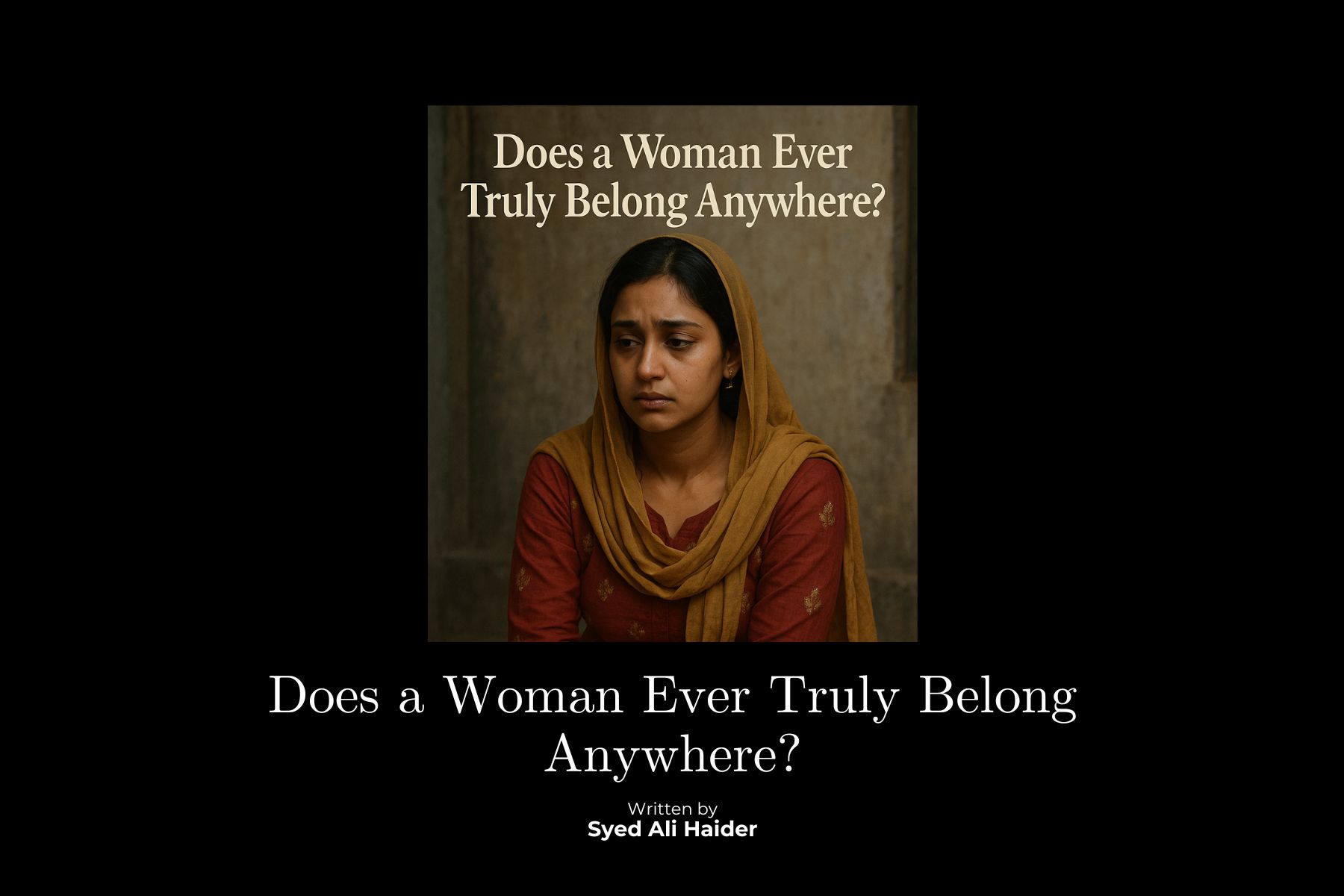Does a Woman Ever Truly Belong Anywhere?
In many South Asian households, there’s a deeply ingrained, often unspoken truth: a woman is never truly told that any place that they belong is her own.
1. The Cultural Programming from Childhood
From a young age, girls are conditioned with a heavy emotional narrative — “Beta, this isn’t your real home. One day you will have to leave for your husband’s house.”
This subtle messaging shapes her entire identity. Even in the most modern homes, girls are reminded — directly or indirectly — that their father’s house isn’t permanent. Her entire childhood, adolescence, and youth pass under the shadow of preparing for “someone else’s home.”
She learns to live like a guest — emotionally careful, obedient, and always aware of the day she must leave.
2. A Brother’s Rights > Her Own?
Even in her own home, her brother’s rights are given priority. She may live in the same house, share the same parents, but her claim to that space is considered temporary — while her brother is the rightful heir.
This creates a subconscious understanding: “I am here, but not fully welcome.”
The foundation of security is already cracked.
3. The New Home — Still Not Hers
When she gets married, it’s believed she will finally have her “own home.” But the reality is far from it.
Even in arranged marriages where the mother-in-law lovingly chooses the bride, even brings her home with celebration — the daughter-in-law often remains an outsider.
As a relationship counselor, I’ve witnessed countless cases where a woman enters a new home and is not treated as a real family member.
If there were already four family members, she becomes the fifth — but not in the same standing. She’s expected to prove herself:
- Fit into their rules
- Adapt to their habits
- Earn their trust and affection
4. From Adaptation to Emotional Displacement
She’s asked to become “like them” to be accepted. She’s often told:
- “The kitchen is yours now.”
- “You are responsible for this home.”
- “You must keep the family together.”
But while she’s handed responsibilities, her rights are rarely acknowledged.
Her individuality fades in the attempt to fit into someone else’s mold.
And if she struggles, she’s blamed.
Even worse, if she ever wants to leave or speak up about unfair treatment, she’s reminded:
- “You didn’t leave that house with respect, don’t come back.”
- “This is your home now, live with it.”
She becomes stuck — not fully accepted by her in-laws, and not fully welcome back at her parental home.
5. Where Does She Truly Belong?
This creates deep-rooted insecurity.
Where is her safe space?
Where can she be herself, unapologetically?
Which roof is truly hers? Where they truly belong?
These are not just emotional questions — they define her identity and mental well-being.
Many women silently suffer under the weight of being “nowhere fully.”
6. A Message to Families: Accept Her as a Daughter
In my counselling sessions, I always give one honest request to families:
Please — if you don’t accept your daughter-in-law like your own daughter, she will never feel like a part of your family.
She may fulfill all her duties — cook, clean, care — but without acceptance, she will always feel like an outsider.
You, as the family, hold the power. You are in the majority. She’s walking into your world — often alone and afraid.
You hand her responsibilities, but give her no emotional security.
She is labeled the “outsider” and left to “adjust.” But unless you embrace her, she cannot grow with you.
7. Final Thoughts: From Bahu to Beti
It’s not about grand gestures — it’s about daily empathy.
Let her feel that your home is her home.
Let her feel that your family is hers, not through force — but through love.
And maybe, just maybe, she’ll finally believe that she belongs somewhere.




